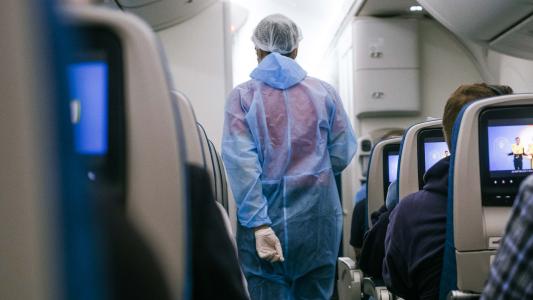Beating COVID-19 hinges upon widespread immunity, and developing an effective vaccine is just the first step to getting there — we need to make that vaccine accessible to people across the globe, including those in lower-income nations.
“If only the wealthiest countries in the world are protected, then international trade, commerce, and society as a whole will continue to be hit hard as the pandemic continues to rage across the globe,” Seth Berkley, CEO of Gavi, an alliance of private and public health organizations focused on increasing immunizations in developing countries, said in a press release.
To avoid that scenario, Gavi, the Serum Institute of India (SII), and the Gates Foundation are teaming up to manufacture and deliver 100 million doses of a $3 coronavirus vaccine to developing nations.
Factories for COVID-19 Vaccines
The SII manufactures 1.5 billion vaccine doses every year — a higher volume than anyone else in the world. That existing infrastructure makes it well positioned to manufacture vaccines at the volume needed to combat a global pandemic.
“We have the ability to scale up very quickly with our existing facilities,” SII’s CEO Adar Poonawalla told the Wall Street Journal in June. “We can do a quick plug and play and stop commercial production of other vaccines.”
But while several coronavirus vaccine candidates are already showing promise, no one can say for certain which one (or ones) will make it across the development finish line and warrant mass production and distribution.
Depending on the winner(s), the manufacturing process will vary — each vaccine requires specific ingredients and equipment — so the best option for getting COVID-19 vaccines out quickly is the creation of specialized “factories” for as many of the promising candidates as possible.
That approach means the facilities will be ready to start production as soon as a vaccine is ready — but it also means sinking money into factories that’ll never be used, something Bill Gates said in an op-ed for the Washington Post in March that private companies can’t afford to do.
So the Gates Foundation is stepping up to help SII mitigate the financial risk as it prepares to manufacture two different COVID-19 vaccines currently in development.
The $3 Coronavirus Vaccine
Through the newly announced partnership, the Gates Foundation will provide the SII with $150 million to help hedge the risk of manufacturing two vaccines, developed by Novavax and Oxford University, before they know if they will be approved.
Specifically, the money will go toward ensuring SII is able to manufacture 100 million doses of a $3 coronavirus vaccine for distribution in 92 low- and middle-income nations.
This is much cheaper than the predicted costs of several other potential COVID-19 vaccines — Moderna expects to sell a two-dose regimen of its vaccine candidate for $74, at least in high-income countries, while Pfizer is pricing its two-dose regimen at $39.
While the Gates Foundation helps with cost, the third partner in the newly announced collaboration, Gavi, will use its existing supply chain to distribute the $3 coronavirus vaccine to the developing nations (a huge challenge for many vaccines, which often need to be kept cold), with a delivery target in the first half of 2021.
But before any of that can happen, one of the vaccines needs to actually prove it works and secure regulatory approval; Oxford’s is closer on that front — Phase 3 trials are already underway, while Novavax hasn’t moved past a combined Phase 1 and 2 trial yet.
We’d love to hear from you! If you have a comment about this article or if you have a tip for a future Freethink story, please email us at tips@freethink.com.






